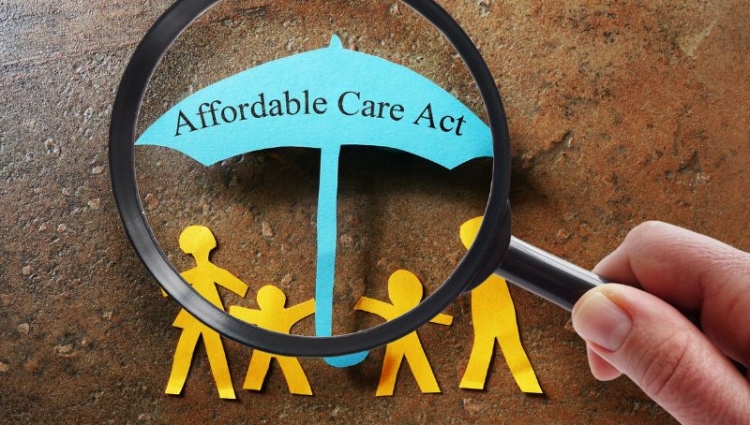The Affordable Care Act, known as Obamacare, has had a major impact on American health care. As the law is implemented and more parts of it become effective, more Americans are getting coverage
and access to preventative care and services. But there are also challenges.
What Obamacare Requires
The Affordable Care Act is a comprehensive health care law that aims to make health insurance more accessible to more people. For people who don't have employer-sponsored coverage, the law forces insurance companies to accept all applicants regardless of pre-existing conditions and allows children to stay on their parents' insurance until age 26. Some of the other requirements of the Affordable Care Act include: - An expansion of Medicaid eligibility to people with income up to 133% of the federal poverty level. - Requiring most individuals to get health insurance or pay a fine, with a penalty too high for many to ignore. - Recognizing the importance of preventive care and allowing patients to get care earlier and visit the doctor more often. - Creating new programs for children, older adults, and people with chronic diseases.
What Obamacare Offers
The law offers a range of health care services and benefits to people with and without coverage. These include: - Essential health benefits: coverage of basic services like emergency care, maternity care, and mental health services. - A new expansion of Medicaid: The program already offers health care to low-income people, but Obamacare requires most states to expand eligibility to include people earning up to 133% of the federal poverty level. - New programs for children: Children can stay on their parent's coverage until age 26, and kids with pre-existing conditions can get coverage through a new high-risk pool. - New programs for older adults: Medicare coverage can be continued as long as people are alive, and states can create a new Medicaid option for low-income people. - New programs for people with chronic conditions: People who have certain conditions can get extra help from the government and get services like mental health care and transportation.
Coverage and Costs
Health insurance can be confusing for anyone, but it becomes more complicated for those who don't have employer-sponsored coverage. There are a number of factors to consider when deciding if Obamacare is right for you: the cost of coverage, whether you need to buy a policy, and what your options are if you have a pre-existing condition. When it comes to coverage and costs, there are a lot of misconceptions about what Obamacare covers and how much it costs. We'll address some of these below. - What Obamacare Covers: The law requires most people to have health insurance. However, it doesn’t apply to people who are covered by an employer or who qualify for Medicaid. People who don’t get covered can get fined and can end up paying a lot more in the long run if they get serious illness or an accident. - How Much it Costs: As with many things in life, there is no one-size-fits-all answer to this question. If you have a pre-existing condition, you are likely to pay more for coverage. The good news is that the share of Americans who have health insurance continues to rise, thanks in part to the law.
Know the Limits of Obamacare
Many Americans assume that the Affordable Care Act will improve access to health care for everyone. However, the law has some limitations. For example, it doesn’t change the fact that many Americans don’t have health insurance. The Affordable Care Act also has some significant challenges and limitations. The law has problems, such as too many uninsured people and not enough insurance options for consumers. For example, too few health plans include low-cost, high-value services such as pediatric care.
Wrap-up
The Affordable Care Act has had a major impact on American health care. More people are getting coverage and accessing preventative care thanks to the law, and there are challenges too, like a shortage of health plan options. The law also has some limitations. However, it has helped millions of people, including those who previously couldn’t get coverage due to a pre-existing condition.





 And then Add to Home Screen.
And then Add to Home Screen.